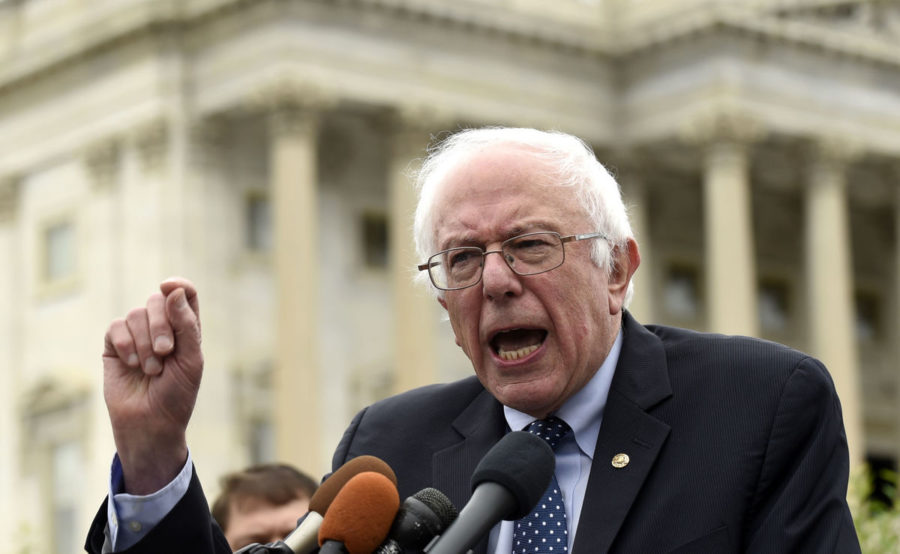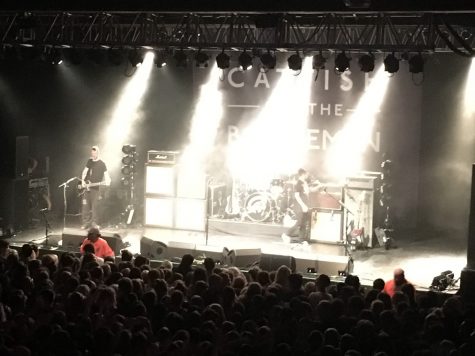2016’s Democratic Primary Patterns
Sanders and Clinton conquered different sides of the pre-election spectrum this year.
Senator Bernie Sanders speaks to a crowd in Washington, D.C. during the primaries this year.
Although presidential candidate Hillary Clinton won the race for Democratic presidential nominee against Vermont Senator Bernie Sanders this year, the two held a close battle up until July, when Sanders publicly endorsed Clinton. Despite losing, Sanders showed considerable strength in one area Clinton simply could not: caucuses.
According to the Council on Foreign Relations, “caucuses are local meetings that are financed and managed by the two major parties in which registered party members gather to discuss and express support for the various presidential candidates.”
The keys in this definition are “registered party members” and “gather to discuss.” In other words, voters must be registered with the Democratic Party to participate in this part of the nominating process, in which candidates gain delegates based on public voting. Sanders’ supporters are known for being much more radical than Clinton’s, and because of the youthfulness in his supportive body, they often come to his events to rally. The necessity of physical grouping was beneficial to Sanders; having many of his fans in one place brought him success in the caucuses.
“[Bernie won caucuses] because there were a lot of college students who liked what Bernie was saying about paying for college,” senior Denae Eldridge said. “They don’t understand the complications and consequences of asking the federal government to pay for students’ colleges.”
In most states, instead of caucuses, primaries are held. In an open primary, it is not necessary to register with the party in which one is voting, but in a closed primary, voters must be registered. Clinton triumphed in primaries in comparison to Sanders; some could argue that this trend is due to demographics, or that Sanders’ supporters are more diligent and willing to register to show support for their candidate.
According to FiveThirtyEight.com, Sanders won 11 of the 16 United States caucuses; Clinton took only four.












